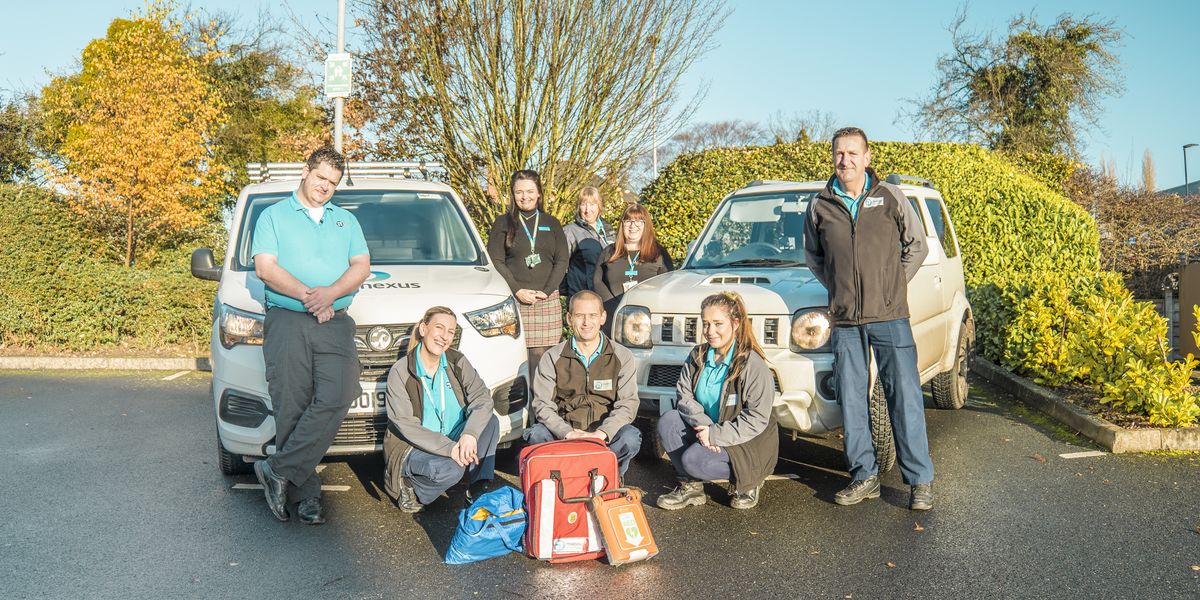Falls Awareness Week 2022

This week (19th – 24th September 2022) is Falls Awareness Week, a national health campaign to increase awareness around falls health and injury prevention. The stats around falls are certainly eye opening, with 1 in 3 women and 1 in 5 men over the age of 65 taking a fall each year. These figures only get more alarming the older we get, with half of people over the age of 80 falling each year. With the average age in Herefordshire and Shropshire being older than the national average, and falls estimated to cost the NHS more than £2.3billion every year, there’s never been a better time to be proactive about falls.
If you have taken a fall, then it is vital that you follow the NHS advice on this webpage.
Falls are a serious issue due to the variety of serious short and long-term effects on our health and wellbeing. The short-term consequences of fall can be highly serious and can include (but are not limited to) cuts, bruises, fractures, head injuries, immobility and even, if left unattended, death. These injuries require immediate medical attention to avoid further complications. Following a fall, individuals can often suffer from ‘post-fall syndrome’, with fear of further falls leading to a loss of confidence, and even anxiety and/or depression. These long-term impacts on mental health can lead to social withdrawal and feelings of loneliness.
Falls Responder Service
If you feel that you are at risk of a fall, a personal alarm system can put your mind and your family at ease. Personal alarm systems can signal for help in the event of a fall. Connexus operate the Falls Responder Service in Herefordshire, in a three-way partnership with Herefordshire Council and Herefordshire Integrated Care Board (ICB).
A truly 24/7 service that operates 365 days a year, the Falls Responder Service offers non-clinical mobile rapid response for non-injured fallers and is available to all adults (18+) across Herefordshire. Falls Responder Service customers can contact the team through their emergency pendant alarm (worn around the neck) or via 999. The team will then visit the individual as soon as possible, in a vehicle fitted with the latest lifting equipment, patient transfer boards, a defibrillator and other essential medical equipment.
The Responder Service attend the home of a non-injured faller and will:
- Assess the faller’s condition, contacting 999 if required
- Provide reassurance and support, contacting carers, friends and family to attend as appropriate
- Provide practical information and advice to prevent repeat falls
- Complete a report of the incident with the faller, assessing what other services can be contacted to help prevent further falls
- With consent, send this report to the faller’s GP
Falls Care Navigator Service
Anyone using the Falls Responder Service who is experiencing frequent falls is offered the support of the Falls Care Navigator Service (operated by Connexus and funded by the NHS Better Care Fund). The Falls Care Navigator Service also operates across Herefordshire and aims to:
- Reduce ambulance call outs to non-injured fallers by raising awareness of the Falls Responder Service
- Reduce the number of fallers unnecessarily transferred to A & E
- Reduce hospital admissions due to falls
- Increase individual’s confidence to be mobile and safe
Falls Care Navigators carry out a holistic assessment in order to produce a bespoke action plan for each individual service user. Outcomes often include:
- Encouraging the user to visit their pharmacy for a medication review
- Referring the use to falls prevention services, which can help with pro-actively preventing falls around the home (such as by removing objects or making adaptions to the home)
- Collaboration with other community groups and services
- Keeping the user’s GPs, social workers and other health and social care professionals informed of their interventions.
Lessons to be learned
The impact of the Falls Responder and Falls Care Navigator services have had on Herefordshire’s fallers cannot be understated. As we’ve learned, the short-term impacts of an unattended faller can be incredibly serious and the fast response time of the Falls Responder Service (36 minutes compared to the average ambulance response time of 4 hours) can make a huge difference and help to take some pressure off already stretched A & E departments. Of course, the real win is in the long-term, with both services working with the NHS and other support services to help to prevent further falls in the future and making life easier for frequent fallers.